As the summer rains come down and mini floods ravish my father’s garden I reflect on what I find here.
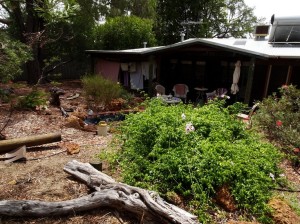
Alzheimer’s is a hideous sneaky disease which robs your loved ones from you right in front of your eyes. The man who I knew and know as my father is both the same and a stranger. He looks the same, same physique, same hair, same hair-style, glasses, colour of eyes, clothes style. And yet he is different.
He is my Father. I can see that. Yet, there’s something different. I happen to come into the kitchen as he’s considering how to get the toast out of the toaster. In his hand he has large steel kitchen tongs. The toaster is plugged into the power socket and the power is on. He fully intends to try to extract the toast by inserting the metal tongs into the toaster to clasp and remove the toast.
Given the learning lessons my somewhat risk-averse, wise engineer-educated father used to teach me, this is as good an example as I can imagine to demonstrate that something is different. I remove the tongs from his hands, turn off the power switch, remove the plug, and simply flick the toaster’s plunger in a fast upward motion causing the toast to pop out.
I want my father back. I don’t want him to slip away through the tragic inevitability of the disease’s progress.
My siblings don’t seem to get this. We are rapidly losing our father and if we don’t spend as much time as possible with him now there will come a time when he won’t know who we are and we’ll be relating to a physical entity who resembles our father. But we shall not have any emotive contact.
In the six months I’ve been away riding around neither of them have made the time to come and visit.
And if you don’t spend time with someone with Alzheimer’s it’s really hard to grasp what it actually means. For my father, for R his wife, for us as his children.
He and R need help, assistance in countless little ways. Alzheimer’s basically regresses an adult back to a child. The simplest things therefore become complex, like toast out of a toaster. Imagine then the garden, shopping, directions when driving, planning, keeping to plans, repairs and maintenance to a house, feeding the dogs … every aspect of a life is affected.
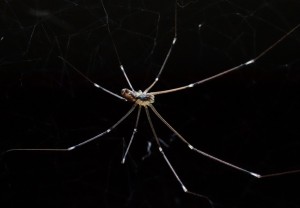
I drove his car. R has her own much smaller car. It is so filthy as to be dangerous. I remember a story he told years ago when my sister visited him with her small baby and he realised the tires of her car were in an appalling state. He bought new ones: “I am not going to have my granddaughter being driven around in a dangerous car”.
Now I can’t see out the windscreen, the mirrors are useless, there are so many pebbles on the floor under the pedals that my foot slips and slides all over the place, the seats are covered in all manner of ‘things’.
It takes me a good two hours to clean the car, for I am not going to have my aging father drive around in a car which is dangerous.
R, my father’s wife could or should look after such things, one would think. No matter how progressive my parents are there was a strong division of labour in some key areas. My father looked after the house and garden, but also did the shopping, cooking and cleaning. R pursued her career, which waxed and waned like most careers. My father can no longer perform these tasks and for R to now learn the techniques and technologies to successfully take over, whilst working a limited number of hours a week and, perhaps most importantly, looking after her husband, is unrealistic if not folly.
The garden is but a fraction of its former glory. It has been simplified and tidied up, by outside help.
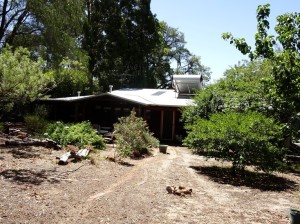
The land is large, the house is large. Downsizing is a concept promoted, certainly by my brother. Yep, downsizing would work. However, Alzheimer’s suffers do not take to change easily. They inhabit a specific comfort zone and taking them out of their zone can be traumatic.
I offered to build a shade-sail over the defunct fish pond on their rear patio. The idea is great, R loves is, my father is enamoured with the idea of the pond returning to its former glory. For days the shade-sail floated around just outside his consciousness, just outside his comfort zone. It mattered not how often we showed him pictures, described why we need it, how it will improve use of the patio, and prevent the devastating algal blooms which killed the previous pond, no matter how after such explanation he’s enthusiastic, later he returns to how it would change the world he’s familiar with and that R has to be brought into the discussion.
Imagine then, trying to clean out their house, with its myriad examples of a lifetime bedecking every surface in every room, a huge shed full of tools and equipment, another shed with five lawnmowers and devices for the garden and yet another shed with lesser gardening tools. It would take weeks of a capable person to sort through all of the items within and without their house just to work out what should be kept, what should be sold, what should be given away and what should be thrown away. Imagine the challenges as each item confronts the borders of my father’s comfort zone where they will be assessed against fluid criteria lacking any obvious rational but nevertheless of tremendous importance.
It would be more than simply traumatic.
In moving my father to a simpler house in another location he would lose whatever deep-seated residual connections to place he still has by virtue of decades living where he does.
Ultimately downsizing is inevitable but only when Alzheimer’s has claimed the last residual cognitive links my father possesses and his comfort zone expands until it becomes limitless.
29 January 2016.
Today my father and I are to embark upon a day-cruise through the western wheatbelt. He’s a frustrated farmer and speaks fondly of the short time he spent as a youth working farms. In hindsight he’d have rather been a farmer than the engineer he became. It remains his one regret. Consequently he likes The Wheat Belt, a huge chunk of south-west Australia which stretches some 500 or so kilometres from Perth to the edge of the Eastern Goldfields and some hundreds of kilometres north and south. Paps likes to tour through it.
Well, at some 155 000 km2 in size there are a L O T of routes one can take. I, We, come up with a doable route … Glen Forrest east to Mundaring north through Stoneville to Gidgegannup, east to Toodyay, north to Goomalling, further north to Calingiri before heading south through Bolgart, back to Toodyay retracing our route to Glen Forrest. Three hundred or so kilometres. Simple.
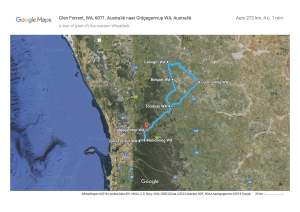
Unfortunately Paps doesn’t really remember such details. In the lead up to the day Paps constantly revisits the route and it shifts depending on what he remembers at the time.
Each day and frequently during the day we return to the plan, the proposed route, whether, in fact, we shouldn’t go to Fremantle instead. He simply does not remember so I go over it again and again and again and deal with the “I thought we were going to Fremantle” queries.
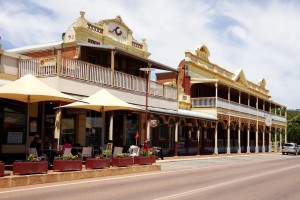
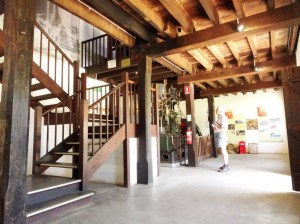
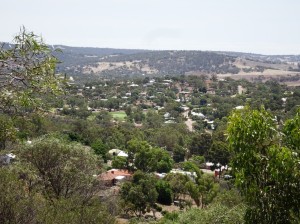
As we drive Paps can’t quite grasp where we are going nor where we’ve been. I am constantly asked about how much fuel the car has even after we fill it up. Paps remarks frequently on when last he was here but I’m not sure he’s ever been to most of the tiny towns we visit, certainly those north and east of Toodyay. It is all part of the mental acrobatics his mind goes through as it attempts to fill in gaps his consciousness notices as the scenery slides by and as we stroll through tiny rural towns.
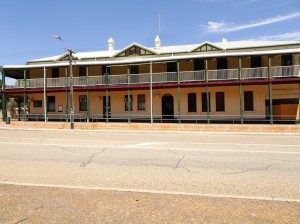
“If you were to suddenly disappear” he tells me “I wouldn’t have clue where I am” as he stares out over the vast expanse of yet another wheat field cropped months ago. In his lap lies a simple map but he can’t relate our location on the road relative to the lines and dots on the map.
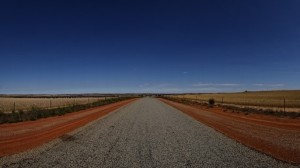
We refuel the Mondeo in Goomalling. “We are we?” he asks. I show him on the map. “Where are we going now?”
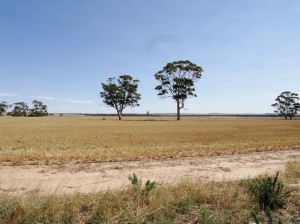
Tracing the line between Goomalling and Calingiri I tell him “Calingiri, then Bolgart, then through Toodyay and home”.
“That’s a long way. Why aren’t we going here?” as his finger retraces the road we’ve just driven along.
Days of planning, hours of driving, lots of discussion but he doesn’t recall any of it. Alzheimer’s. No point in pointing out that we’ve just driven along it, nor that we have a plan.
“Well, we’ve just driven along that road … “ “Oh! Yes, that’s right” “ … and I thought it would be nice to do a loop through Calingiri and Bolgart. I don’t think I’ve ever been to those towns” “Okay, yes, let’s do that.”
Alzheimer’s is not a linear phenomenon, restricted to some form of mental degradation. It spirals off into various different expressions. Bereft of knowing and memory often his moods are expressed through his physicality. Tiredness and fatigue when the kaleidoscope of the big wide world overwhelms his ability to process experiencing it. He doesn’t take part in the world around him anymore. It must be like experiencing it for the first time, which would wear anyone out. Shopping, for example, wears him out as he doesn’t really understand what we are shopping for nor why. As the day progresses he begins to fade and as we reach Calingiri he wants to return to home “ … as soon as possible.”
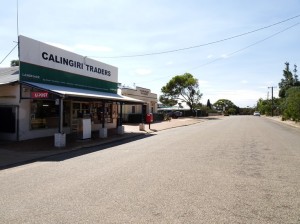
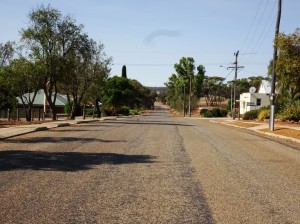
The map remains open in his lap allowing me to trace our route as we drive. It reassures him that my finger gets closer and closer to home each time he asks. Five kilometres north of Toodyay an accident has brought all traffic to a standstill. A rollover and fire. Helicopters, fire-engines, police, ambulances and emergency repair crew to replace a destroyed electricity pole. I’ve no idea of the fate of the people or person in the car but we retrace our steps and take a number of small gravel roads until we get back on the Toodyay Road.
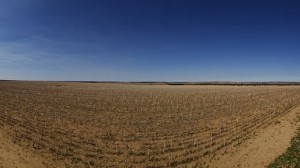
The Toodyay Road parallels the Great Eastern Highway. Our route has us travel along the more scenic Toodyay Road until the Stoneville turn-off, then through Mundaring, crossing over the Great Eastern Highway, right on Phillips Road and eventually into Glen Forrest. The same way we took at the beginning of our journey.
There are a number of alternatives which would take us to the Highway and we pass them one after another: Clackline, Wooroloo, Chidlow, Mount Helena. At each one Paps’ voice rises as he tells and asks me “Aren’t we turning left here? We can take this one.” As each option slips past I tell him why. But he simply forgets.
Finally I turn left at Stoneville Road.
“I’ll leave it to you to know when to turn left” Paps suddenly says as we drive along Stoneville Road.
‘Turn left’? I think. Turn left. There is no turn left until we are in Glen Forrest at least twenty kilometres from here. It then dawns on me … we used to live on Traylen Road in Stoneville. Coming from the north along Stoneville Road we’d have to turn left onto Traylen Road. We lived there for less than twelve months waaay back in 1975. Alzheimer’s … it’s a regressive disease in which short-term memory dissipates leaving Paps with disconnected elements of a distant past which are now as clear and relevant to him as the present is to me.
The whole day as I drive he comments on my driving. Not particularly negative comments, except he thinks I am exceeding the speed limit although since I’m driving a sedate 80 most of the time we are at least 10 if not 30 kilometres under the maximum. Am I tired, am I okay, am I fine to drive? Paps used to be the Alpha in the house, and in the car. A good, reliable, safe driver. He still is, except he doesn’t know where he is driving. Although he enjoys watching the agricultural landscape role on by – “You see a lot more when you are not driving” – at a subliminal level it riles him that he is not in the driver’s seat, literally and figuratively. He wants to drive and can’t figure out why I won’t let him. “Would you like to drive” I ask. “Oh No!” he remarks hastily “unless you are tired and want me to.” “I’m fine” I say and keep driving.
Alzheimer’s. Normally I’d politely let a backseat-driver know that their commentary is unwelcome and to please keep it to themselves. This is not ‘normal’.
Elements of his distant past are revealed as they emerge from wherever they lie in his mind. Some are amusing, some totally new, some profound and shocking. Particularly family things about his parents, his relations with his siblings, things normally safely constrained between two adults who live together, marry, have children, fight, divorce and re-build their lives. Things which would never fully be explained even if a child would point blank ask, as they are between man and wife. Some truths should remain obscured. Yet now they slip out of his mouth without a shred of self-consciousness, revealing whole new elements to my childhood and why certain things happened when they did.
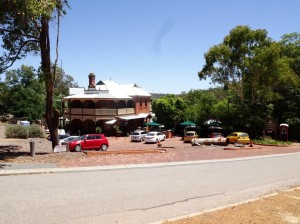
In addition to the pleasant charming and easy going man who I know as my father, other adjectives to describe him are becoming more and more frequent: bellicose, belligerent, cantankerous, obstreperous. I don’t know this person, this father for he is new. It is a function, so I am told, of the progress of Alzheimer’s.
I’ve no idea precisely what’s going on in Paps’ head. I put the pieces together from what he appears to be saying coupled to what I know of how Alzheimer’s works. Whatever it is it is real to him. If I do not validate his opinion or thoughts he gets very frustrated, believing I am treating him like a fool, or ignoring him. I catch myself sometimes, when I talk with him, imagining I can rationalise with him. I can’t though. Paps’ cognitive abilities have degraded significantly. Instead I must change my approach. Take him literal, show him I am listening, listen carefully, and reply in a cool focussed manner. Reassured he calms, for a moment, until something else challenges his perceptions and we repeat the process.
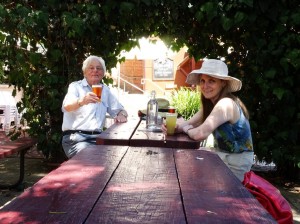
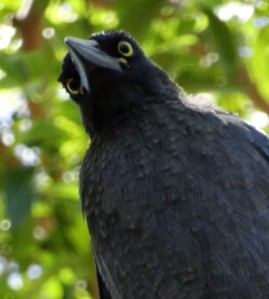
It is moments like this that I despair for my siblings. They don’t spend enough time with him, not frequently enough and not long enough when they do. Short infrequent visits will paint a very different picture from being immersed with him in his world. R tells me and warns me and yet it is still so difficult to learn new approaches with father, replacing half a century of intimate knowledge and experience. If I did not spend such time with him I would just not get it.
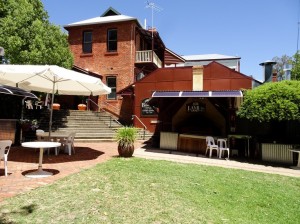
If I and R are talking he doesn’t really take part, sitting in his chair a neutral expression on his face. The logical sequence of conversation using past present and conceptual knowledge lies beyond him. Sometimes he picks up on a word or a name and will interject requesting clarification. If we don’t do this he’ll get increasingly loud and angry as he believes he’s being sidelined. R is far more cognitive about this than I am. She stops the conversation and focusses entirely upon him and in a clear and lucid manner addresses his query. Satisfied he retreats into his opaque world as the conversation flows around him again. Sometimes I find myself responding in a jocular manner expecting a repertoire from a likeminded individual. It falls flat. He doesn’t get it and all it gets me is an increasingly irate, disconsolate father who feels I am being unfair or dismissive of him. It’s horrible. This is not the father I grew up with.
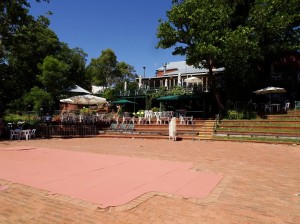
Otherwise, when we sit outside coffees in hand talking banter looking at the sky and tree-line, there’s no problem. You wouldn’t even know he’s got Alzheimer’s.
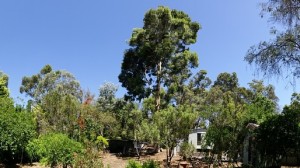
1 February 2016
Medicare, run/managed by the Department of Human Services is Australia’s universal and constantly under threat health care system “Looking after health of Australians”. Otherwise for all intents and purposes, Australia’s version of a centralised personal identification system which for all intents and purposes replicates the failed Australia [ID] Card, mooted in the 80s and vehemently opposed by everyone not in the government at the time.
So, not an ‘identity card’ but necessary to identify a person living in Australia in the eyes of the not insignificant bureaucracy which citizens and residents of the Lucky Country have to work their way through.
As my time here slowly and continuously extends and the reasons for me to return to Life in Scandinavia diminish, I make my way down to the Medicare office in Midland to (re-)enrol. I can’t quite remember if I ever had a Medicare Card so don’t really know if I am enrolling or re-enrolling.
Last night R printed out the ‘Enrol in Medicare’ form which I dutifully filled in abetted by her.
Walk up the short flight of steps, the glass doors slide open and reveals a large open space. Deep inside is a single lectern at which stands a single person. Snaking from them to the door is a long single file of people: clients. After the tenth person the queue bends to accommodate the numbers since our single person handling inquiries cannot cope with the deluge. I join the queue.
Ten minutes later a mobile man appears with a tablet and also starts to deal with the queue.
I tell him I’m to enroll in Medicare and answer “Yes” when he asks if I’ve filled in the requisite form.
Directed to the waiting area on the right side of the cavernous space I take a seat and wonder how long it’s going to take.
Ten minutes later I join a rather perfunctory woman who barely looks at my forms but asks “Have you a Medicare card or number?” Honestly I don’t know and tell her so. Glancing at my name and address she finds me in the system. I exist. I have a Medicare number. WoW! thinks I, this is easy. Going fast.
Too easy.
I still have to fill in all the forms to apply for a number I already have. Err … visions of Kafka float before my eyes.
Her eyes widen slightly when I answer “Twenty seven years” to her question of “How long have you been out of Australia?”
This means I have to fill in a Statutory Declaration justifying to the Australian government why I, an Australian citizen, should be allowed such an exalted right to live ‘officially’ in my own country. The Statutory Declaration must be signed in the presence of one from a long list of people on the back of the form none of who I actually know personally but who will vouch that it is I who has written the Statutory Declaration.
“Can’t you vouch that I wrote the Statutory Declaration? After all you represent the organisation who requires it”
The short answer is “No”.
Twenty minutes after entering the Medicare office I leave, one step closer but empty handed nonetheless. I godda get used to the charm of an indifferent bureaucracy dealing with the struggle people have in meeting its obtuse and somewhat hostile requirements. I have to, for example, apply for a number I already have and justify to ‘my’ government why I should be allowed to live in the country of which I am a citizen.
02 February 2016. Medicare Midland Take II
Same queue: ten or so people including groups. 1512. Let’s see how long it takes this time.
Usual mix of Occidentals, Orientals, Indigenous People, old, young, parent(s) and kid(s), some in-between people.
Same single lectern womaned by the sole assistant, the vast hall sparsely populated. Red Tape in Action. I join the queue, armed with my Statutory Declaration signed by someone at the Post Office having showed them my passport. A feat impossible in the Medicare office in front of a Medicare staff member, apparently.
The queue doubles in length before I make it half way to the lectern. As the queue begins to snake dangerously deep into the Space a tablet-wielding assistant appears to ease the load.
Today I shall try a different mental approach. Assuming I’m up against Mr/Ms Perfunctory Indifference I shall exude easy-going niceness. Openness to nullify their opaqueness. Willingness to offset their Red-Tape. An easy manner to neutralise their stiff formality. Perhaps it’ll work.
And otherwise try to make my passage through this opaque unfriendly hostile process as easy and simple and as swift as possible.
Within ten minutes of waiting I face another woman, who is a touch more friendly. We go through my papers. Statutory Declaration: no problem. Smug, I figure I have it.
“Do you have one of the two items on this list?” as she runs a pen along a short list on one of the pages on the form:
‘Documents from Australia
- purchase of property agreement and gas or electricity accounts in the same name
- lease agreement for rental of property and gas or electricity accounts in same name
- evidence of employment
- evidence of children at school or university, and/or
- private health insurance in Australia, opening of bank accounts, property or contents insurance.’
“Sure” I say with great confidence and plonk on the table my contract with Glen Helen Homestead and Lodge. And my Westpac Bank card. “Evidence of employment and opening a bank account” I tell her, just in case she doesn’t get it.
Nope, a valid bank card from a noted Australian bank is not ‘evidence of … opening of bank accounts’. “But, err, I can’t have the bank card without having a bank account” I argue, pointing out that the form does not define what ‘evidence’ of ‘opening a bank account’ is.
Fortunately 300 metres down the road is a branch of Westpac. I head down there to get some kind of official paper from them telling Medicare that I do indeed have a bank account.
02 February 2016. 1556. Medicare Midland Take III
Same office same queue but only the mobile-wielding assistant this time, few people. It’s almost closing time. Same waiting area.
The assistant is perfunctory, a stickler for the rules, even to the extent of having no opinion. For by now, two days of buss travel, queues in various organisations to get stamps of approvals, sitting around waiting only to find out there’s still more pieces of paper I need to fill in, I am bursting with curiosity.
“What”, for example, “would happen if I did not have ‘evidence of employment’?“ “How come a Post Office employee can sign a Statutory Declaration but an employee of Medicare cannot?” “Why isn’t a bank card ‘evidence of opening a bank account’?”.
And in particular the rather unclear way the enroll in Medicare Form is constructed in which, for example, question 9 asks “Were you born in Australia?”. If I answer ‘yes’ I go to question 11. If I answer ‘no’ I’m asked, as part of question 9: “Reason for entry to Australia (e.g. migrant residing in Australia)”, then my “Entry date” and “Departure date”. Question 10 then asks “Country of residence prior to entering Australia”.
Well, I first arrived in Australia as a migrant aged 7 sometime in November 1969, from England.
No matter how logical that train of answer seemed to me and R, when we went through the questionnaire last night, I get grilled comprehensively on “How long did you live in England” “I didn’t live in England” I reply. “But you wrote here ‘England’” pointing to question 10. And “Are you migrating to Australia now?” with her pen hovering over question 9 and the word ‘migrant’. This really sounds like a loaded question. “No” I answer “I am returning to Australia” before explaining I thought the questions were referring to when and how I became an Australian citizen.
I suggest to the dour assistant that it would be easier for all if the form was made somewhat more clear and logical.
“Why does it matter” I ask “about when I returned to Australia (as an Australian citizen) and why the Statutory Declaration?”
“Well, in case you want to access Australian (social) services. We want to know you are going to live permanently in Australia and that you don’t live somewhere else” implying some hideous nefarious intent on my behalf.
“But, err, I’m Australian, shouldn’t I be allowed to access Australian services?”
“I just do my job. I follow the rules. I don’t ask questions”
By now Franz Kafka is jumping around poking me in my side giggling at the uselessness of my attempts to get some kind of understanding as to the inexplicable nature of the form and the supporting documents my government is going to use to determine if I can live in my country. Again.
Then … “When did you arrive in Australia?”
By and large I’m a firm believer in honesty. I mean, what could possibly be wrong with answering honestly when, this time, I arrived in Australia? “24th June” “Have you visited a doctor since arriving in Australia?” “Yes” “Then we need proof of your arrival date” with a triumphant gleam in her eyes as she sits back in her chair and distances herself from her keyboard and twin computer displays.
Fuck me! Kafka is beside himself now, rolling on the floor in stitches of laughter. I just get the rather uncomfortable sensation of flick-knives appearing in my eyes and think ‘Fuck being nice’ and plot my assault on her senses.
“Or do you want to have the date of enrollment in Medicare from today?” she asks hastily as she rapidly puts some distance between her and the hysterical Kafka and my flick-knives.
“Yes, that’ll be fine” I answer coolly.
And suddenly it is all over. They, whoever ‘They’ are, don’t review any of my documents and assess my suitability to recover the Medicare number I already own. They are just boxes which need to be ticked. I mean what’s the point of the Statutory Declaration if no one reads it? Kafka is looking waaay over tooo smug as he watches.
Satisfied Ms Perfunctory punches lots of stuff into the computer and prints out a temporary Medicare card and tells me the official one will be mine in a couple of weeks.
“ … have a pleasant afternoon” she wishes me as I make to leave.
“Thank you. I wish you a pleasant afternoon too” and make my exit.
4 February … a ride through my Back Yard: Helena Valley
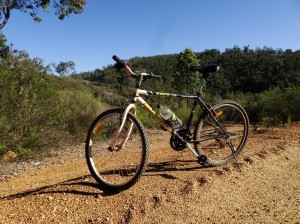
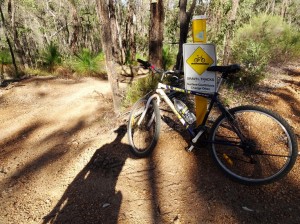
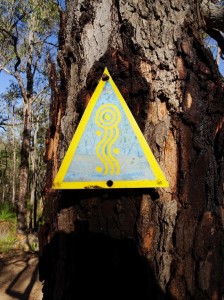
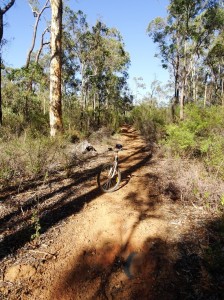
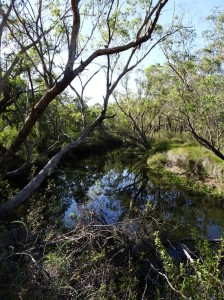
Interwoven with Medicare is Telstra.
Despite a mineral commodity industry which made Australia one of the most expensive countries in the world in which to live and saved it from recession there are huge chunks of Australia with telecommunications capabilities less than most impoverished Majority countries lacking any decent industrial sector. Although choice of mobile and internet providers exists in cities and large towns, there is but one for the entire rest of the continent: Telstra. Duh duh duh daaaaa …
Dutifully I followed advice from E V E R Y O N E and got a Telstra pre-paid mobile + internet option called Freedom Plus. E V E R Y 28 days I must ‘recharge’ my account by a minimum of 30$ otherwise my ‘Freedom Plus’ option dies a sullen death AND Telstra gets to keep any credit I’ve built up. I kid you not, if I do not make 30$ worth of calls and do not recharge my account by 30$ Telstra keeps my money!
Now, as I’ve bumped and ground my way across Australia often completely out of IT coverage I’ve often had to recharge even though I’ve not made a single call. Consequently my account has burgeoned out to 239$ and Telstra still wants me to top up, warning me by SMS “Hi, just letting you know that your Data Nights Data Intl Cred Freedom Plus will expire in 4 days”.
I stand to lose 239$ in less than four days. Or 269$ in 4 + 28 days. That is one hell of a lot of phone calls. Even data, internet roaming to you and I, won’t chew through that much since I’m on Paps WiFi network.
I call Telstra’s Customer Service who, it turns out are based in Manila. They have a set of ‘rules’ they, as Medicare, need to follow. My key question is, of course, “What is the difference between Telstra keeping 239$ of mine without providing me any product or service, and someone stealing 239$ from me?”. They have a series of stock answers to this question: “It’s like if you pay someone to paint your house.” I’m told “You agree on a sum for the house to be painted”. “Sure,” I answer, “but I get a painted house. If not, there are means to re-coup my money assuming I paid all in advance.”
It’s pretty obvious the customer service people in Manila are pretty hamstrung in what they can actually do. They, after all, are not Telstra, merely an outsourced call-centre.
For three days Telstra’s customer service people work diligently with me.
I want to know how to get my money back. I’ll give Jared his due, he tried to come up with some pretty innovative solutions. I don’t make many phone calls nor send SMSs. I do use a lot of data. Blogs are like that.
Jared tries to convert my SIM card to an internet dongle, thereby transferring my entire 239$ to data. It all hinges on whether I’m able to make and receive calls. I can receive them, but not make them. Bummer. Back to square one.
Three days later we are back with Freedom Plus and I’m busily looking up Consumer Protection coz I am damned if I am to lose 239$.
Jared then drops the Bomb … it is because the minimum I must recharge is 30$ and I must do this E V R Y 28 days that I have ‘saved’ 239$ in Bank Telstra. He can change the expiry date from 2 February 2016 to 2 February 2018. Two full years down the line. There’s a catch to this. Data costs bloom from 10$ per GB to 2$ per MB.
“How many MBs per GB?” I ask Jared, somewhat stunned by what he’d just told me.
“1000” he answers.
“That’s 2000$ per GB”
Silence.
I check how much data I used in November. It comes to 11 GB.
“It means I’d have had to spend 22 000$ in November” I tell him.
“Err, yes, that’s right.” concedes Jared.
“That makes sense to you?”
“No” he agrees.
There’s a possible way around this. To avoid paying an astronomical amount to use ‘data’ I send a message to Browse + 39/49/59, in which the numbers mean the cost of 1, 3 or 4 GB of data respectively. For sure more expensive than the 10$ per GB I enjoyed previously but at least I do not accumulate more and more capital which I cannot access in Bank Telstra.
This approach allows me whittle down my savings in Bank Telstra and for at least two years not have to top-up. I am still very uncertain though just how Telstra can keep my money when they don’t provide me a service. Something fishy about that.
06 February 2016: Lake Leschenaultia, a family occasion
A heat-wave izzacummin … so we changed the location of a bit of a family get-together from Paps’ house, which does not have a swimming pool nor is particularly kid-friendly to a water-hole near to which we, the Smith-clan, lived long, long ago. It’s about half-way between Cob’s farm and Paps’ house.
Lake Leschenaultia is a permanent large dam-lake in Chidlow. I haven’t been there for decades and figured a family get-together involving upwards of four kids aged 9 through 15 plus three direct parents, one uncle (me), one grandparent (Paps) and Stepmom/grandmom R on Day 1 of a heatwave would be better where everyone’s likely to get something from it.
Cob and family thought it a great idea. Lea and Amy however can not make it.
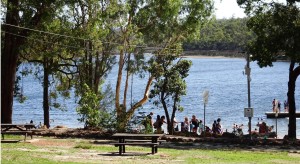
We are not alone in thinking Lake Leschenaultia would be a good idea Day 1 of a heatwave. The car park is packed. All the purpose-built shelters are occupied, some with extended families which dwarf ours. All BBQs are in business. The beach relatively empty, since it IS a heatwave and sitting out in full sun is akin to standing in front of a flame thrower. The water, however, is alive with bodies and activity.
Despite the crowd there’s still plenty of room and we find a picnic table under some impressive trees and set up.
A BBQ, or two, becomes available pretty soon and Cob and I do the honours, each armed with their respective family’s version of BBQ-able fare. Cob, being a farmer, has meat. Lots of meat including home-raised goat, lamb and beef. I, being an urbanite, have a kilogram of prawns which will be combined with tofu, chilli, soya-sauce and lemon. Three Porterhouse Steaks. And some pumpkin and aubergine.
Cob is totally bemused. The kids are amazed, Kerry (wife/mom) remarks she’s never had tofu (“Really?” I ask, stunned “never?”), nor aubergine (“C’mon!”) and have never heard of someone BBQing it. Even Cob remarks he’s never chucked a prawn on a barby. “If ya ga look at any ather barby” he tells the kids, “ya wan’t find eny tofu annit”
It was quite a cook-up. The chilli slowed the all-conquering prawn-consuming fanaticism of Family Cob, for whom prawns are a spiritual ritual. Kilograms per person can be consumed by Family Cob.
Despite Family Cob being a farming family Kerry wouldn’t eat the family goat. She enjoyed the beef and lamb.
Brendan, Cob & Kerry’s middle one, wants me to go swimming. Not a bad idea given it IS a heatwave. The water is delicious but Brendan wants to take on the pontoon where a gaggle of kids and teenagers are busily throwing each other off. I couldn’t quite identify my demographic on the pontoon but figured I should play The Uncle and at get on the pontoon at least once.
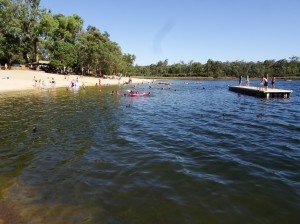
A complete stranger asks me if I’m Brendan’s dad. “No”, I answer, “why?” “Coz we’ve godda try and thrown ‘im in”, is his disarmingly simple answer. Next thing I know I’m throwing kids left and right. The bigger teenagers keep a healthy distance. For a while. I suffer a few skullduggerous sneak attacks when I’m throwing one or other kid off. They can only come from the bigger teenagers and they start getting thrown off too.
Kerry turns up. Being a country girl with a L O T of brothers and now three boys of her own she knows the rules and gets stuck into Brendan but suffers them skullduggerous sneak attacks too. Rowan, at nine the smallest, makes his way out and joins in. Austin, a meaty fifteen-year-old comes out and damned near tosses me in.
By now the pontoon is a complete war zone where a dozen kids from a dozen families are busily battling to stay on it.
“I’m going to get Cob!” Kerry declares and heads to shore. I’m sure she’ll return alone.
Moments later a brilliant vision in white is making his way towards the Pontoon. Cob, it is actually Cob, without a shirt. Oh Boy, thinks I. Until now I’ve enjoyed complete supremacy on the pontoon. Cob is going to seriously threaten this.
After he arrives and we toss a few random kids off I ask him “Wanna have a go?” to which he answers “Sure!” and we go for it.
I toss him off. Not easily mind you, but toss him I did.
Two tall good looking young and very fit men turn up. They get involved in tossing kids off too.
The Elephant on the Pontoon is too irresistible for us all to resist and when there’s no small kids left on the pontoon I turn to one of the young men and ask if they wanna have a go. Sure enough, they do.
If I thought Cob was going to threaten my supremacy, these guys are on another level again. They are fit without a gram of fat. Oh Boy, I think, still I have to give it ago.
I toss him in! Not easy mind you, but he did go in.
I turn around and his elder and larger brother is looking at me, twinkle in his eye, full of beard and body hair and a good head taller than I. Oh Boy, thinks I, still I have to give it ago.
I toss him in! Not easy mind you, but in he did go.
We repeat this ritual during the Battle for the Pontoon and each time I am victorious.
The Pontoon is clear again and I turn around to face the two brothers looking at me. There’s no one else around. “Ok” I say “Let’s try this” and we advance. I am rapidly losing ground trying to work out how to split the Brothers before they secure their grip on me and in I get tossed when suddenly from behind comes Cob and takes out Bigger Brother and I toss Little Brother in. We laugh, highfive and survey our domain.
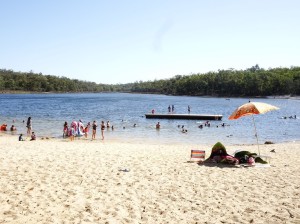
One time more, when the Pontoon is clear do Brothers Smith face-off Brothers Young. We prevail and in recognition of the shear effort necessary to toss large people off, or try and be tossed, we sign an unconditional agreement of no-direct tossing. Mind you, them sneaky skullduggerous attacks continue unabated.
Eventually it is clear it is time to call time on the Battle of the Pontoon. Cob and I are standing on the Pontoon, bodies all around in the water, new kids arriving all the time, weary warriors making their way to the safety of calmer waters. Time to quit.
It’s been a lot of fun. No one got hurt, no tears, not screams, no bad vibe at all. Brendan remarks “You’re strong!” and it’s true, I am the undisputed King of the Pontoon, which was a surprise and something pretty much everyone enjoyed too. After all, I did a lot of tossing of kids who very much wanted to be tossed. Rowan smile plastered on his face would stand facing the water and ask “Thrown me in!” I’d pick him up and ungracefully toss him as far I could. He loved it. As we all did.
Hours later we return to Paps and R, clean up pack up and leave to our respective homes.
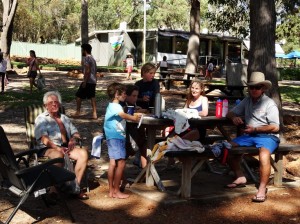
I cannot recall having a more fun time with family in decades, for it has been decades since the last time we’ve had the opportunity to have such fun.
Something I perhaps should keep in mind when I start seriously planning my future once my Epic is over.
Max
Glen Forrest, 7 February 2016

Ha! Good one Max! R 🙂
LikeLike
Very entertaining and also vulnerable in ways. Thanks Max, cheers Robyn
On Sunday, February 7, 2016, cycloaustralis wrote:
> maxzavood posted: “As the summer rains come down and mini floods ravish my > father’s garden I reflect on what I find here. Alzheimer’s is a hideous > sneaky disease which robs your loved ones from you right in front of your > eyes. The man who I knew and know as my father” >
LikeLike
Thanks Robyn. I can’t say I’ve been well prepared for the inevitable change from being supported by parents to supporting them. There is certainly a sense of poignant vulnerability about it.
LikeLike
I don’t reckon you can ever prepare enough for that point. Where possible you just enjoy the time with parents / friends / loved ones until that sad day when it is no longer possible. As long as you do not look backwards and think “I should have…” you’re doing OK.
LikeLike
Hi max. Just read this. I was moved by your explaination of your fathers Alzheimer’s and wish you and R a lot of strength.
LikeLike
Thanks Hans. It is a difficult situation. Very touching one too. Pure love is really the most effective way to connect since love transcends age and barriers. He may not remember much, but he can still feel.
LikeLike